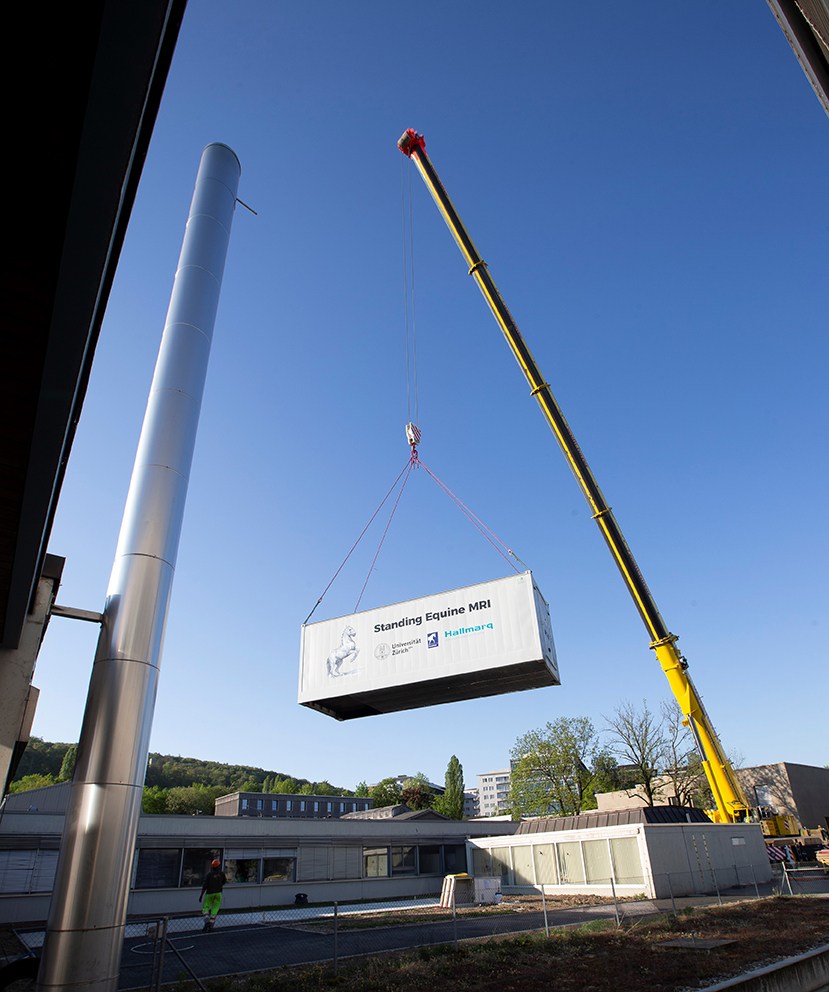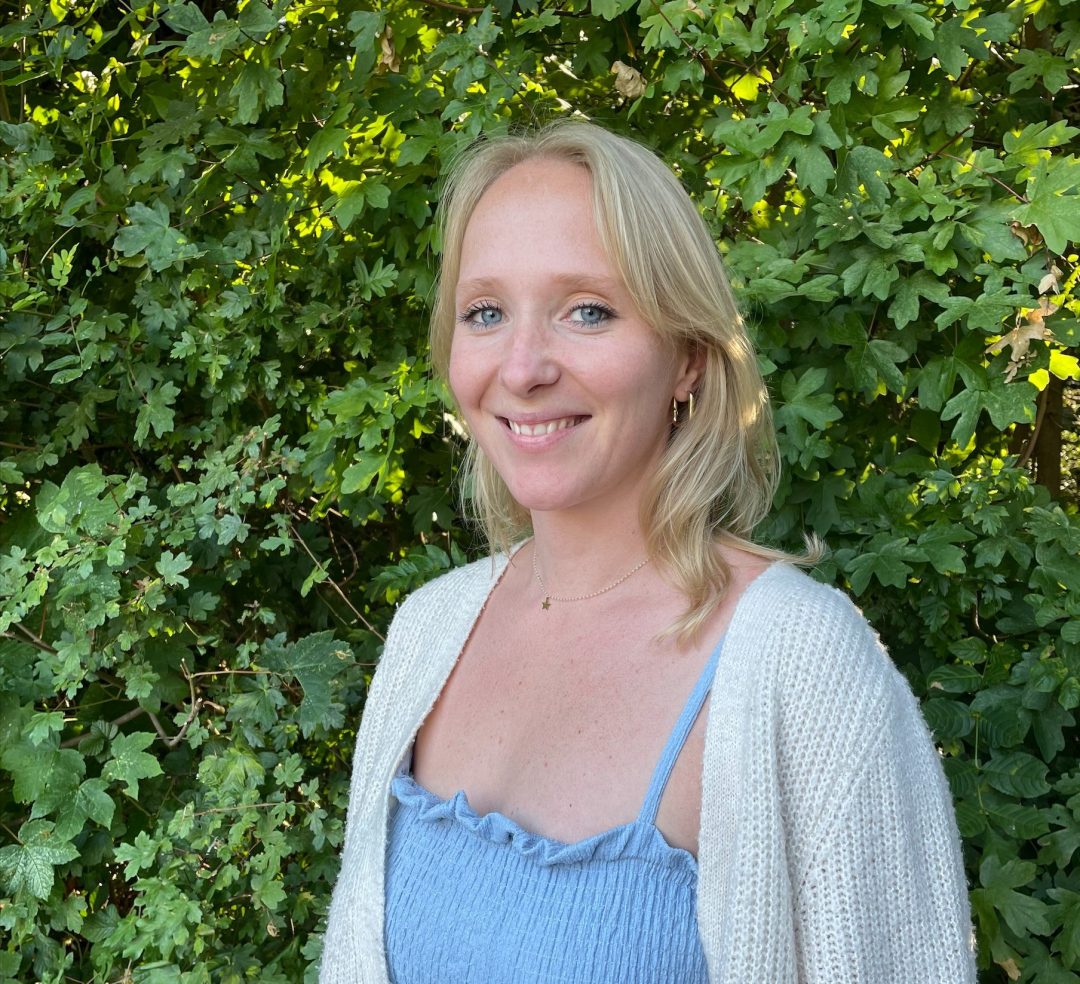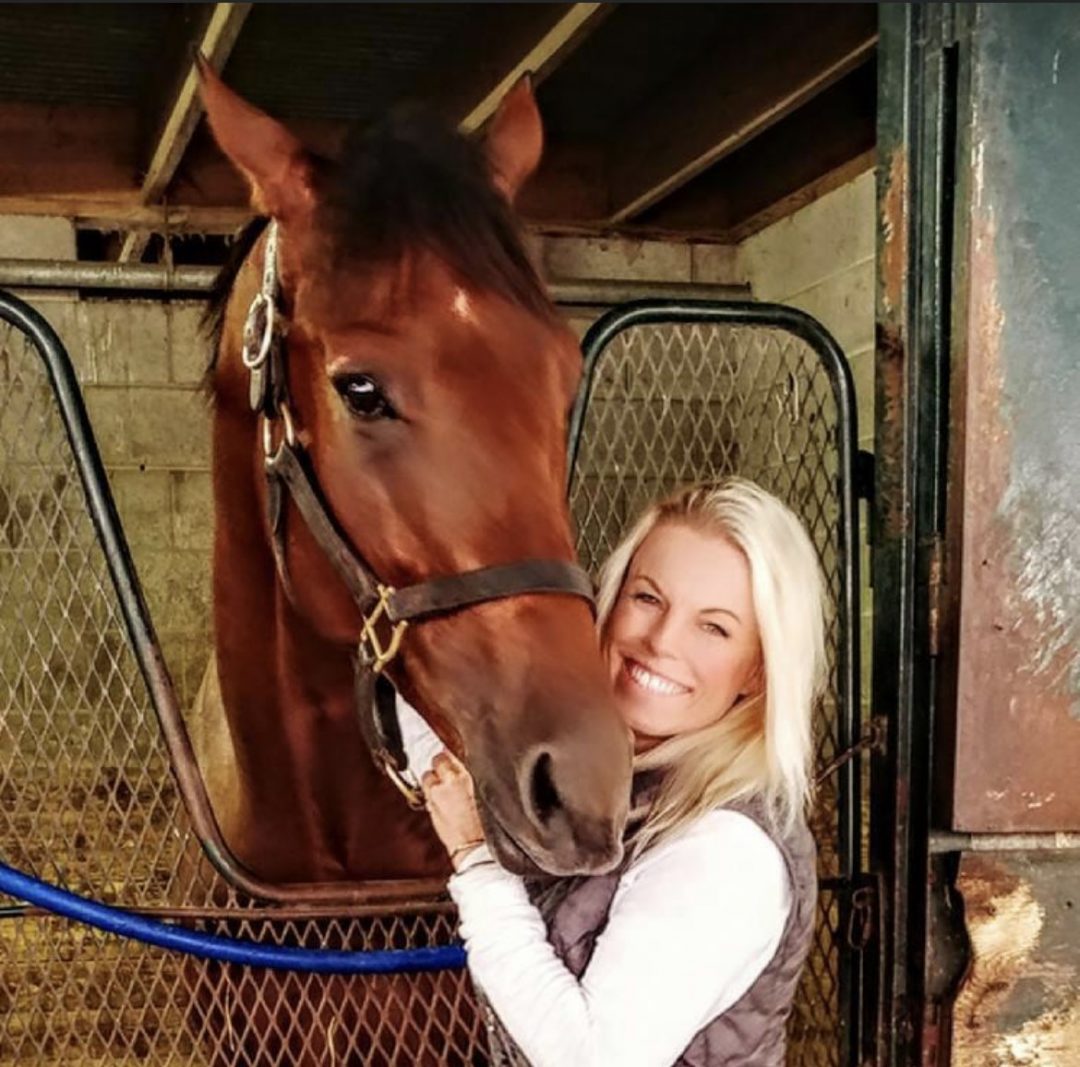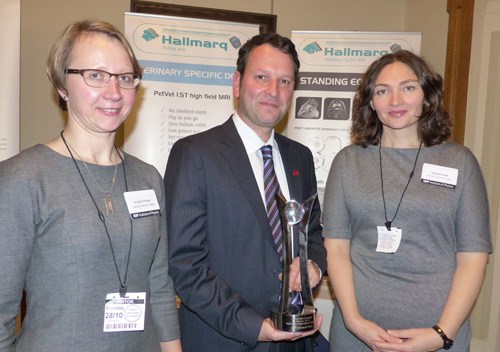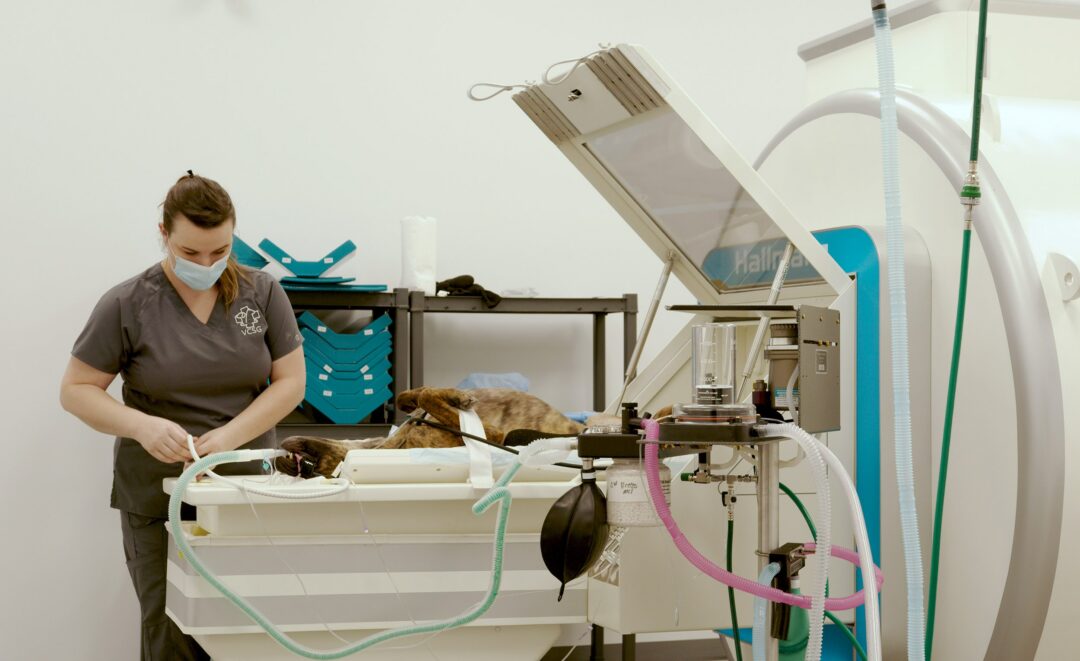Shipping MRI systems around the world is nothing new for Hallmarq Veterinary Imaging. After all, with over 100 systems installed globally, we’ve had plenty of practice. However, shipping, installing, commissioning and training a new installation, whilst in the middle of a global pandemic, is another thing entirely. Our CEO, Jos Belgrave, recently wrote on the theme of resilience; it’s something that he believes we, as individuals and as a company, demonstrate in spades. This certainly proved to be the case with our latest installation of a standing equine MRI system at the University of Zurich’s School of Veterinary Medicine.
With a ban on travel already in place, and lockdown compulsory for all except key workers, COVID-19 forced a re-think of every usual process we follow. In late March, a decision to transport the MRI system ahead of schedule was made, on the basis that it would be in Switzerland once the customer site was ready for delivery in May. In anticipation of restrictions, the MRI system was tested in-house, by our engineers, on extended levels over and above the usual set of protocols normally applied pre-shipment. This included “shimming” (or fine-tuning) the magnet for image quality optimization.
Working closely, but socially distant with our haulers, collection of the modular room from our UK warehouse, for shipment to a holding facility in Zurich, took place on 7th April. In addition, our manufacturing team produced extensive documentation for the Zurich team, outlining steps for siting and unpacking the system on arrival; a procedure normally carried out by our own engineers whilst physically on site.
On April 23rd, two weeks’ after it arrived in Zurich, the system was craned into place at the University’s Vet School using a 300-ton crane and an exceptionally skilled operator. Maneuvering a box, the size of a shipping container, containing hundreds of thousands of pounds worth of highly advanced MRI equipment, over the rooftops of a range of buildings and into place, is not for the faint-hearted!
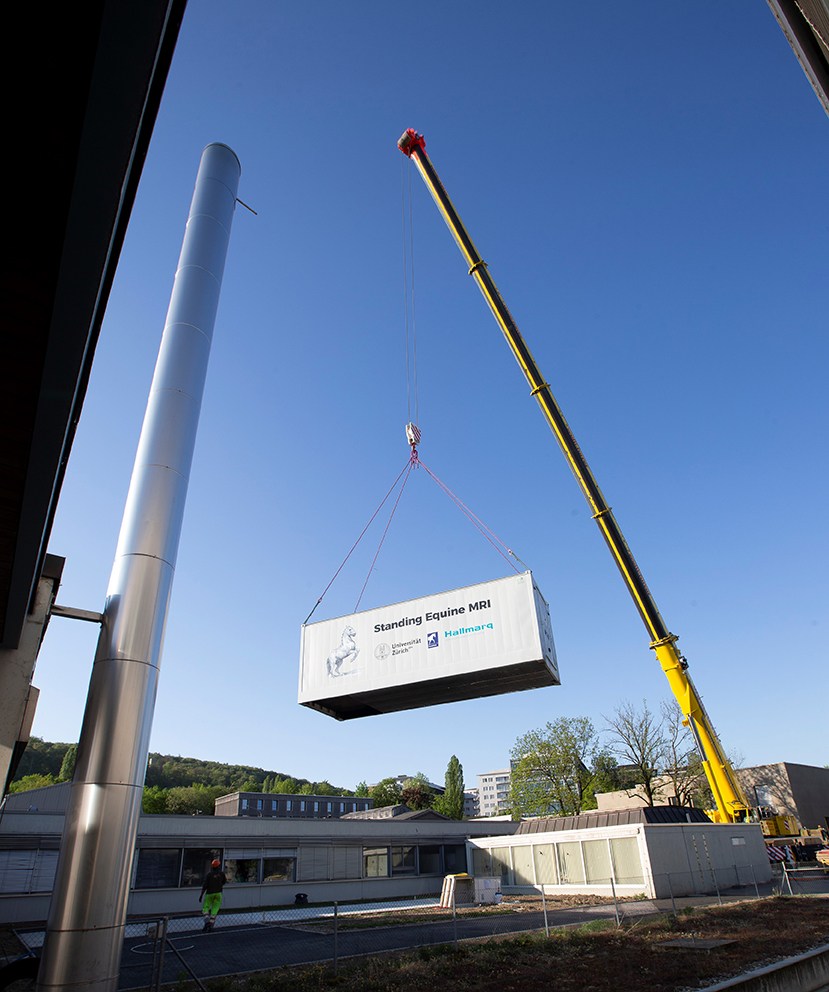
With the modular room sited and in place, a local electrician was sourced by the Vet School and arrived to “plug in” the system and carry out compulsory voltage tests. Fortunately, different criteria around lockdown in Switzerland meant that this could happen. With electricity and broadband up and running, the MRI system was then commissioned remotely with our engineering and support teams working from their respective homes in the UK. In collaboration with the customer, the magnet was positioned out of ‘shipping state’ and calibration scans were run.
All our installations include system training for up to four operators and is usually done with our specialist trainer physically in the room. In the case of Zurich however, remote refresher training was carried out with the Vet School’s Senior Clinician, José Suárez Sánchez-Andrade who is ECVDI Board Certified in diagnostic imaging, and experienced in using the Hallmarq standing equine MRI system through his previous work with AOI (Animal Oncology and Imaging Centre) in Switzerland. Once both parties were happy that a set sequence of scans, essential for the acquisition of clinical images, had been run and approved, the system was signed off as accepted and ready to use on 19th May.
Our customer support team is now on hand to remotely monitor and co-pilot the system and to manage problems or queries that may arise. Unlike the rest of this process, Hallmarq’s support team has always worked remotely to ensure that customer sites are up and running without problem; their combined knowledge and expertise is available as a standard offering under our Q-Care world-class support program.
This remote module siting, commissioning and training was a first for Hallmarq and made possible with an experienced system operator on site. José’s familiarity with Hallmarq’s standing equine MRI enabled our team to work in collaboration with him, not only to help prepare the system but to commission it ready for use. It’s a first but maybe not a last! Although a return to some semblance of normality would be welcome, we appreciate that it will take time. Meanwhile, we will continue to work on finding solutions that deliver excellence for our customers.
Zurich’s installation demonstrated Hallmarq’s resilience – and what can happen with a combined knowledge, dedication, enthusiasm and sheer determination to “get the job” done. Resilience, it would appear, is very much a core attribute that Hallmarq, its staff and customers share in abundance.
